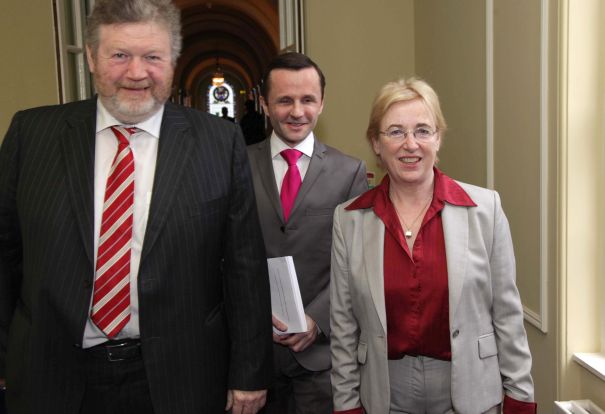On 24 November 2021, the Child Law Project held an online launch of its analytical report, Ripe for Reform: An Analytical Review of Three Years of Court Reporting on Child Care Proceedings
You can watch this launch here.
On 6 March 2019, Dr Carol Coulter and Maria Corbett presented to the Oireachtas Committee on Justice and Equality on theme of Family Law Reform.
Read the opening statement here: Reform of the Family Law System
Child care law reporting without tears
The Association of Lawyers for Children invited Dr Carol Coulter, director of the Child Care Law Reporting Project, to address its annual conference in Bristol on November 22nd2018 and to participate in a panel discussion afterwards. This is her address to the conference.
Launch of Report into Complex Cases in the District Court, June 5th2018
Videographer: Oisin Vince Coulter
International conference on “Child Protection and the Law”

The Child Care Law Reporting Project, in conjunction with the Professional Training unit of the Law Society, organised a conference on “Child Protection and the Law” on Monday 13th April, with speakers from Scotland, England and Finland as well as Ireland. The aim of this conference was to examine the results of the research of the Child Care Law Reporting Project into the operation of the Child Care Acts in the courts, and research undertaken by UCC into experience of the child care courts, and to look at the approaches taken to child protection and the law in a number of other jurisdictions.
This conference, chaired by Dr Geoffrey Shannon, Government rapporteur on child protection and by Tanya Ward, chief executive of the Children’s Rights Alliance, was an inter-disciplinary one, designed for all who might have an interest in child protection and the law. Its aim was to bring together legal practitioners, social workers, politicians and public servants, as well as academics, NGOs and members of the public, to explore these issues.
The conference was opened by the Minister for Children and Youth Affairs, and the opening address was given by Mrs Justice Catherine McGuinness, former judge of the Supreme Court and former President of the Law Reform Commission. The other speakers included Dr Carol Coulter, director of the Child Care Law Reporting Project; Janice McGhee of Edinburgh University; Sophie Kershaw, of the Family Drug and Alcohol Court in England; Professor Tarja Poso, of the University of Tampere, Finland and Dr Conor O’Mahony, University College Cork.